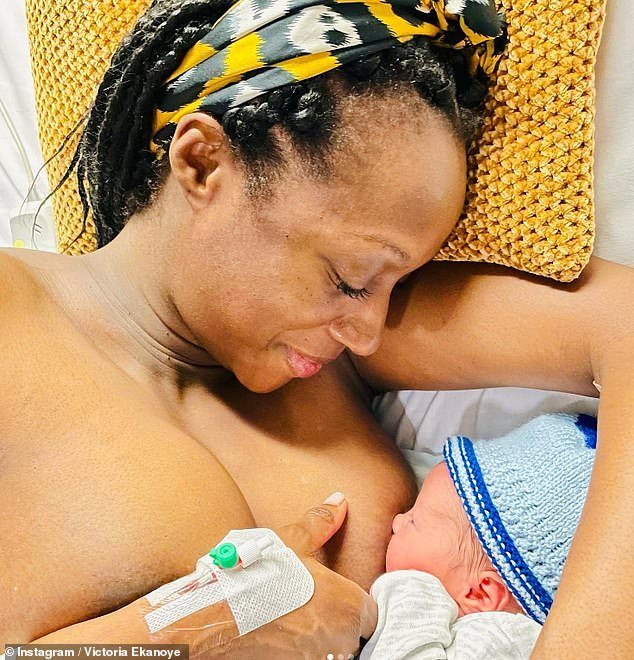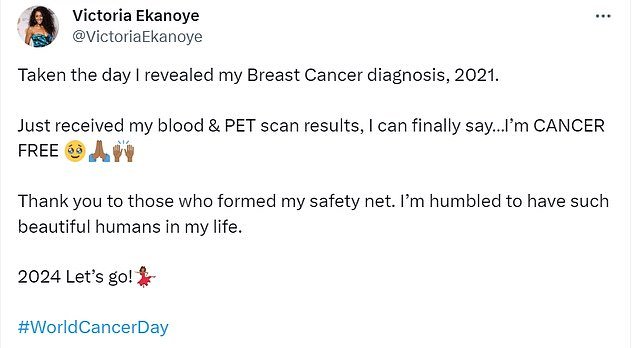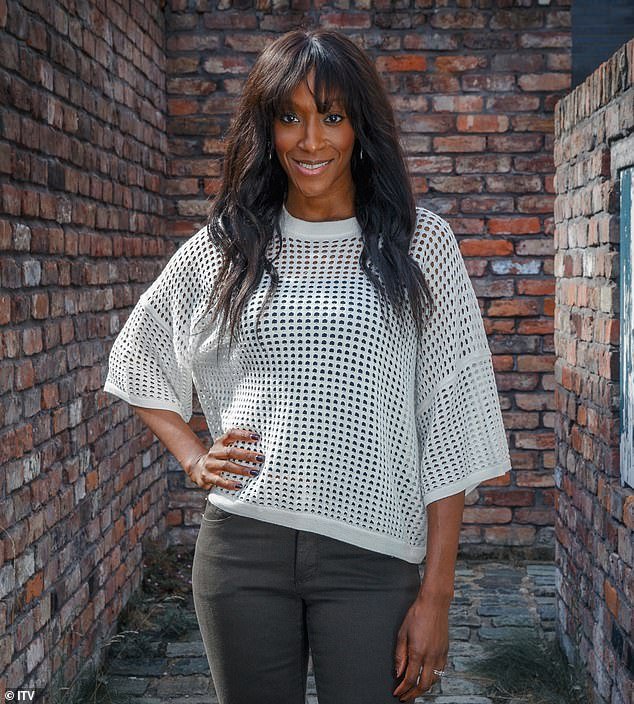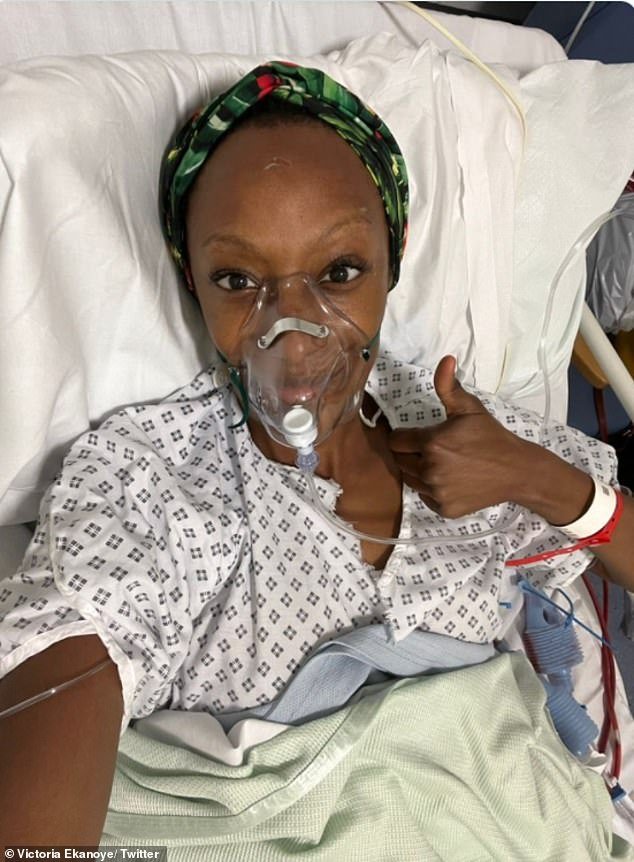Coronation Street star Victoria Ekanoye has revealed she is finally cancer free, two years after she was diagnosed with the disease.
The actress revealed that she was diagnosed with breast cancer in 2021 and has since undergone a double mastectomy.
Victoria, who previously played Angie Appleton in the ITV soap from 2017 to 2019, revealed her latest PET scan came back clear.
Victoria wrote in a snap of tweets with her partner Jonny Lomas and their son Théo: ‘Taken on the day I revealed my breast cancer diagnosis, 2021. Just received my blood and PET scan results, I can finally say… I am CANCER FREE
“Thank you to those who were my safety net. I am humbled to have such beautiful people in my life. 2024 Let’s go! #WorldCancerDay.”
Coronation Street actress Victoria Ekanoye has revealed she is finally cancer free, two years after she was diagnosed with the disease


The actress revealed that she was diagnosed with breast cancer in 2021 after finding a lump while breastfeeding her son Theo, and has since undergone a double mastectomy.


Victoria, who previously played Angie Appleton in the ITV soap from 2017 to 2019, revealed her latest PET scan came back clear
Speaking to The Sun about her news, she said: ‘Oh god it’s been a long wait, obviously at the end of 2021 I was diagnosed and our boy wasn’t even 1 year old yet so we’re just over the moon to have that to drop the weight from our shoulders.
“We laughed and cried, it was so surreal because it feels like it’s been going on for so long.”
Victoria first discovered a lump the size of a frozen pea while breastfeeding her six-month-old son in 2021.
She then underwent a double mastectomy after being diagnosed with ductal carcinoma, a form of breast cancer, in the same location.
After her diagnosis, Victoria landed a role in Death In Paradise in 2022, but was devastated when she discovered a ‘second lump’ in her breast on set in Guadeloupe.
She told MailOnline: ‘I had to fly to Guadeloupe and I took my son and mother with me.
‘While I was there I found a second lump, so that was the moment for me. I remember being on set and about to move on.
“I had to take a few minutes to put it in the back of my mind and just kind of talk to myself, ‘You can handle this. Go out and do your job!’


Victoria previously played Angie Appleton in Coronation Street from 2017 to 2019


She underwent a double mastectomy after being diagnosed with ductal carcinoma, a form of breast cancer, in the same location
‘When we came back – we actually came back to England in September – and that’s when I went to the GP because I know there’s a great service called the One Stop Breast Clinic.
“Basically, if you’re symptomatic, whatever the symptoms are, they’ll make sure you get an appointment and you’ll be seen within two weeks.
‘I’ve had a physical examination by the breast nurse and then I’ve had a needle test in my armpit, I’ve had mammograms, I’ve also had biopsies in the mammography – so they’ve taken samples from both lumps – and I’ve had ultrasounds on the day that Well, so I was there for about four hours total. I did not expect that.
‘I’m so grateful and towards the end of that day I saw the breast consultant. And she said, “Look, I want to be honest with you. It concerns me what we’re seeing, but obviously we have to send everything out for samples, so you can come back next week – we’ll meet with the head consultant and bring someone with you.”
“And my family has heard that before, so I knew it had to be something.”
She explained that it was then that she decided she would have a double mastectomy regardless of what they found: “Because I didn’t have the risk of it coming back in the other breast or coming back in the same breast – and all with the risk of this in the family.’
In December, she shared an update on her battle with cancer during an appearance on Loose Women, revealing that there were only a very small number of tumor cells circulating in her body.
“I haven’t told you this yet, but I’m doing great!” They gave me medication instead of chemotherapy because chemotherapy was more life-threatening because of my sickle cell disease,” she said.
“The side effects of that are that I’m now in induced menopause, which is a lot of fun with a toddler,” she joked.
‘So I went and had an incredible, groundbreaking blood test to see if I still had circulating tumor cells in my body from the breast cancer, and indeed I do, but it’s a very small amount that can be treated.
‘I hope you don’t need chemotherapy because of all the side effects it brings.
‘But the most important thing for me is that I know it now, because it is at the molecular level. It’s not something you see on a scan, an ultrasound or a mammogram, it’s nothing you can feel.’

